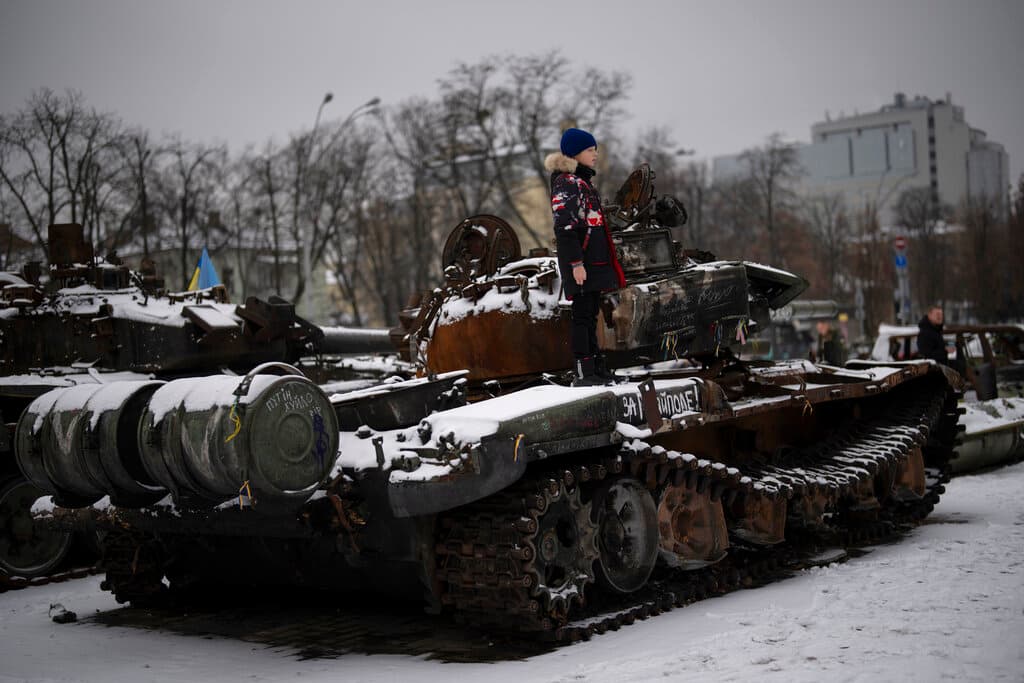Russia, Evoking Boiled Frogs and Salami, Predicts Ukraine Will Get Fighter Jets in Weeks
A Russian analysis sees escalation of the Ukraine war by the West, but in small stages.

President Biden has said no to sending F-16 fighter jets to Ukraine, but oddly enough Russia is not taking that as a nyet. The dust may have barely settled on the matter of delivering better combat tanks to Ukraine, but the thinking at Moscow is that Washington could send the planes to Ukraine within two months, which would coincide with widely anticipated spring offensives from both the Russian and Ukrainian sides.
Please check your email.
A verification code has been sent to
Didn't get a code? Click to resend.
To continue reading, please select:
Enter your email to read for FREE
Get 1 FREE article
Join the Sun for a PENNY A DAY
$0.01/day for 60 days
Cancel anytime
100% ad free experience
Unlimited article and commenting access
Full annual dues ($120) billed after 60 days

